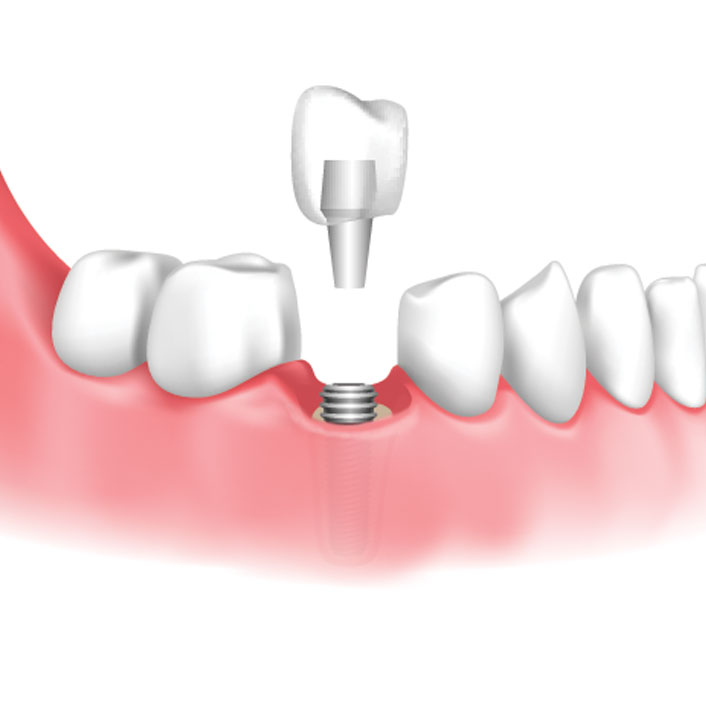
Lexington Prosthodontics provides restorative dentistry in Burlington, MA. Call 781-222-3359 to learn more and schedule your appointment.
Restorative dental treatments repair or replace teeth that have been damaged by injury or decay. While the focus of restorative dentistry is improving oral health, many of these procedures also result in improved aesthetics as well.
Choosing a prosthodontist for your restorative treatments means you’re choosing a dental professional who has received advanced training in how to create restorations that perfectly balance form and function, with results that look and perform just like natural teeth. Dr. Cusanello prioritizes saving as much of your original tooth structure as possible by using conservative treatments that preserve the integrity of your teeth and jaw.
Lexington Prosthodontics offers the following types of restorative procedures:
Aside from dental cleanings and oral exams, cavities are one of the most common reasons for visiting the dentist. We treat cavities by carefully removing all areas of decay, then using a tooth-colored composite material to restore the surface of the tooth to its original shape and size. The result is an aesthetic restoration that blends in naturally with the rest of your smile.
Sometimes decay and damage are too extensive for a composite filling to repair, but not enough to warrant the use of a crown. In these cases, we use inlays and onlays as a restorative treatment. Sometimes called partial crowns, inlays and onlays are made with tooth-colored porcelain or gold and they restore function to damaged teeth by replacing the missing tooth structure.
Crowns are dental restorations used to completely cover the outside of a damaged tooth. This damage may be due to decay, but crowns are also used to repair teeth that have been cracked, broken, or worn down from teeth grinding. The process of getting a crown involves preparing the tooth above the gumline, taking impressions, and then having a custom-made crown fabricated to cement onto the prepared tooth.
Bridges are a common replacement option for missing teeth that uses healthy teeth to hold one or more prosthetics in place. There are a few different types of bridges available depending on your needs, but the most common type uses crowns on adjacent teeth as the abutments that support the replacement teeth (also known as pontics).
In most cases, dental implants are the best solution for missing teeth. This is because implants are the only option that replaces the missing tooth below the gumline, preventing and even reversing bone loss in the jaw. A single-tooth dental implant restoration consists of a titanium post that is implanted into the jaw where the root once was, an abutment that is attached to this post, and a crown that is attached to the abutment. Other types of implant restorations use implants to support bridges, partial dentures, and full dentures.
When multiple teeth are missing in a single upper or lower arch, dentures are an option to replace them. Dentures may be full or partial, removable or fixed, and conventional or supported by dental implants.
Call 781-222-3359 to schedule your appointment.
Restorative dentistry is any dental treatment that restores your oral health after injury, infection, decay, or tooth loss. At a minimum, these treatments focus on the function and strength of the affected tooth or teeth, but when performed by a skilled prosthodontist like Dr. Cusanello, these procedures will also improve the appearance of your smile through the use of aesthetic materials like composite resin and porcelain restorations.
Restorative dental treatments include composite fillings, inlays
and onlays, dental crowns, dental bridges, dental implants, and
dentures.
Why is restorative dentistry important?
It’s not just important for your oral health that you have strong,
healthy teeth—it’s important for your overall health as well.
Broken or missing teeth can make it difficult to eat the
nutritious foods your body needs to thrive, infections can spread
if left untreated, and bone loss in the jaw that occurs when a
missing tooth isn’t replaced can cause facial collapse.
An untreated cavity will continue to grow and spread until the tooth fractures or the decay reaches the pulp of the tooth and a root canal or extraction is needed. Treating a cavity promptly saves you money, time, and discomfort.
It can be frustrating to feel that you’re doing all the right things, but still getting cavities. First, evaluate your brushing habits. Are you brushing for two minutes, twice a day? Are you brushing the fronts, backs, and chewing surfaces of each tooth? If your brushing habits aren’t to blame, then a lack of flossing could be the culprit. You should floss at least once a day, between all of your teeth, all the way down to the gum line. A diet high in starchy foods—particularly sugary drinks—can result in tooth decay even with excellent brushing habits. Sometimes, though, it’s just a matter of genetics—you may naturally have more grooves and pits in your teeth where tartar can collect. Dental sealants can help if this is the case.